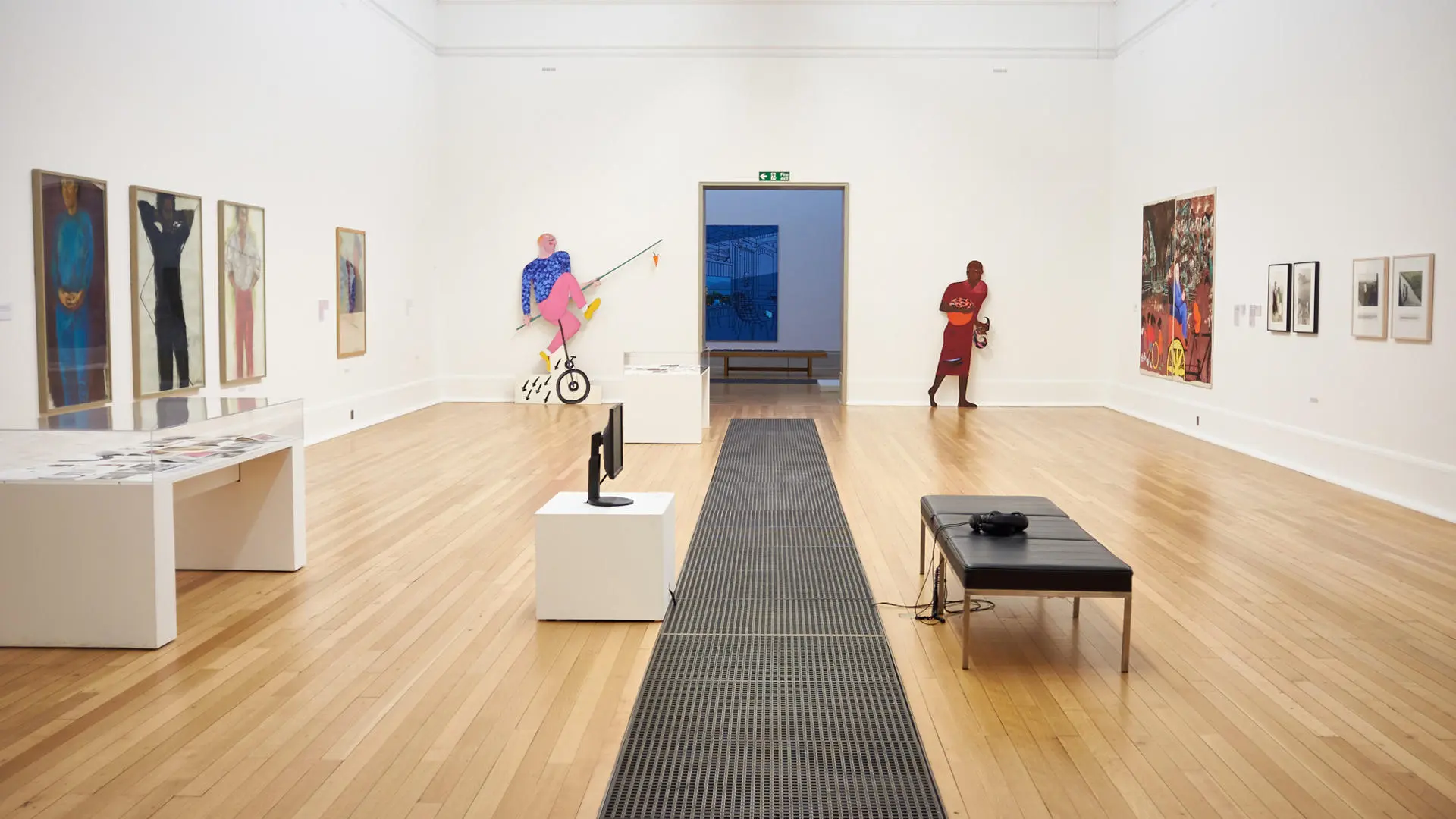The 2017 Turner Prize winner Professor Lubaina Himid, CBE and her Making Histories Visible archive, which features work by Black artists, has transformed the landscape of modern art both here in Britain and internationally. Her research seeks to explore and address the lack of visibility of the work of Black women visual artists in museum collections and temporary displays of contemporary art in Britain.
The work has supported and mentored young Black female artists and grass-roots artistic organisations, such as Root-Ed Zine which aims to promote, support, represent and inspire creative people of colour living within the North West of England. Professor Himid has worked extensively with renowned international and national galleries, such as the Tate, London and the Walker Gallery, Liverpool to influence changes in curatorial practice. Her research has identified a significant lack of representation of Black artists in museum collections and has led to change in gallery acquisition strategies through long-standing engagement with curators. In 2011, she curated the Tate Britain show Thin Black Line(s) that displayed the work of pioneer Black women artists, placing these previously marginalised cultural workers at the heart of the establishment.
Subsequently, the work has generated new ways of thinking between artists and institutions and has pioneered innovative ways of engaging the public. Himid’s Five Conversations show at the High Line, New York, attracted 8,000,000 people and informed their elementary schools’ after-school programme. Himid’s Our Kisses are Petals exhibition at the BALTIC Centre of Contemporary Arts, Gateshead featured an extensive public engagement programme, attracting visitors who would not normally engage with gallery spaces and events. Himid’s research has transcended beyond artistic and curatorial circles to engage in wider societal debates on the representation of Black lives in the media, through her residency with The Guardian newspaper.
